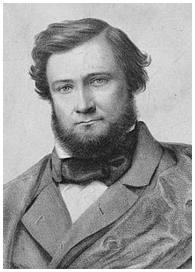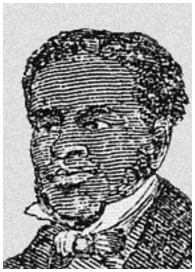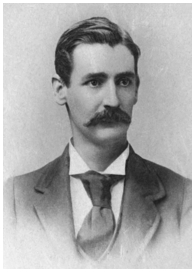 |



|
EUREKA REBELLION
The Australian gold rush of the early 1850s resulted in a shortage of workers in the colonies, which the unelected British administrations tried to remedy by introducing a tax called a 'Miner's Right', which at one point cost 30 shillings for one month's mining - a huge amount for the poor. The law was often brutally enforced by corrupt police during 'licence hunts', which caused deep resentment among the diggers (as the miners were often called), whose many complaints, petitions and protests were ignored by colonial governments.
At Ballarat in 1854 the diggers had additional grievances. The servant of a Catholic priest who could not speak English was arrested and treated brutally over a misunderstanding, which aggrieved Irish Catholics who made up the largest portion of the mining community. The most grievous injury was the murder of a Scottish digger, James Scobie, in a brawl outside the Eureka Hotel on October 7. The hotel owner initially escaped justice thanks to his friendship with the local magistrate, triggering a violent protest in which the pub was burnt to the ground.
Anti-government sentiment found a voice on November 11, 1854, when diggers formed the Ballarat Reform League. A charter, spelling out their political demands, had one simple but vital principle; 'That it is the inalienable right of every citizen to have a voice in making the laws that he is called on to obey... [and] taxation without representation is tyranny.' The diggers' fury was further ignited when three men were sentenced to prison for burning down the hotel. Confrontation became inevitable when a deputation to Lieutenant-Governor Hotham demanding political reform, and the release of three men unjustly imprisoned for the fire, was rebuffed.
Soon after the deputation returned to Ballarat hundreds of soldiers arrived. On November 29, over 10,000 diggers were present when the Southern Cross flag was first unfurled, becoming the symbol of their struggle. Many burned their licences. The following day, after a provocative licence hunt, a smaller group, led by an Irishman named Peter Lalor, swore the 'digger's oath' to this flag; "We swear by the Southern Cross to stand truly by each other and fight to defend our rights and liberties". The diggers quickly erected barricades to form what became known as the Eureka Stockade, located on Bakery Hill. After a two day stand-off, 282 troopers and mounted police attacked the camp just before dawn on Sunday, December 3, catching the diggers unprepared. The 120 or so diggers in the stockade were quickly overwhelmed. Two dozen diggers were killed, as were four soldiers and one policeman.
In February 1855 an American named John Joseph was the first of 13 diggers to be put on trial for high treason, as the government believed a jury would have no trouble convicting a black man alleged to have fired the shot that killed Captain Wise. The Melbourne jury returned quickly from their deliberations, finding him not guilty. Pandemonium broke out in the court at the verdict. The cheering was so loud that the judge, in a fit of pique, singled out two members of the public gallery and jailed them for a week for contempt of court. All the remaining diggers subsequently walked free, which had the effect of totally discrediting Hotham.
The deaths of so many diggers, some killed after they had surrendered, outraged the wider community. When juries acquitted all the diggers put on trial for treason the humiliated and discredited administration, which had sought a violent confrontation to teach the unruly diggers a lesson, had little recourse but to buckle to community demands for rapid democratic reform for fear of sparking an American style independence movement. Within a year all the Chartist inspired democratic reforms had been introduced, and the hated Miner's Right replaced with an inexpensive annual licence that gave diggers title to the land they mined.
Like the storming of the Bastille and the Boston Tea Party before it, the rebellion demonstrated the refusal of citizens to suffer meekly the arbitrary and unfair transgressions of oppressive governments. Mark Twain wrote: ''I think it might be called the finest thing in Australian history. It was a revolution - small in size, but great politically.'' The diggers who fought with their mates for justice, democracy, and 'a fair go' will not be forgotten. Their efforts were immortalized in poems by Victor Daley ('Stand Up') and Henry Lawson ('Eureka - A Fragment').
. . . . . . . . . . . . . . . . . . . . . . . . . . . . . . . . . |
|
"The possession of arms is the distinction between a freeman and a slave." – Edmund Burke
|
|
|